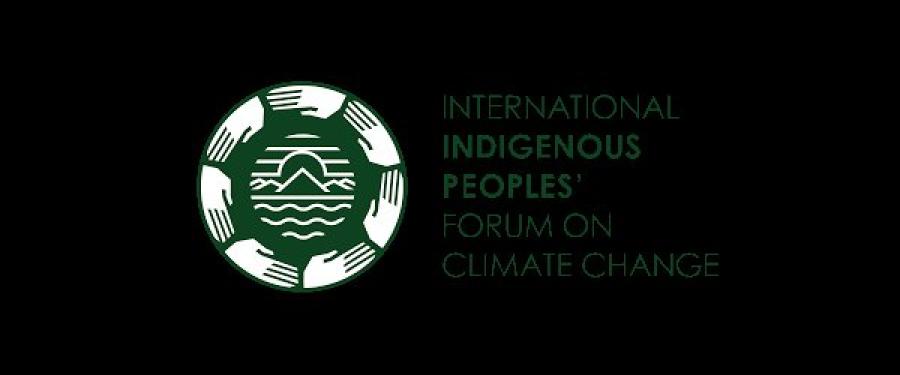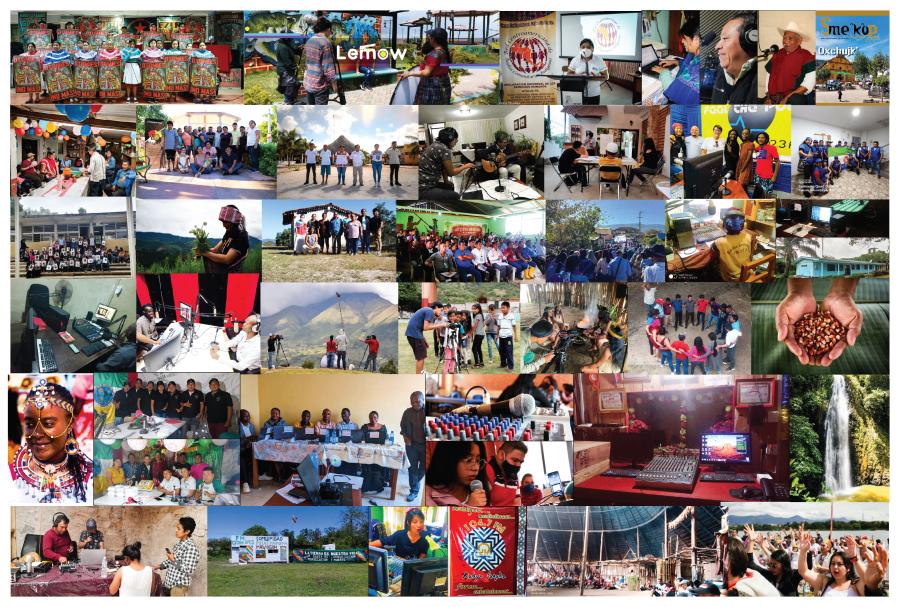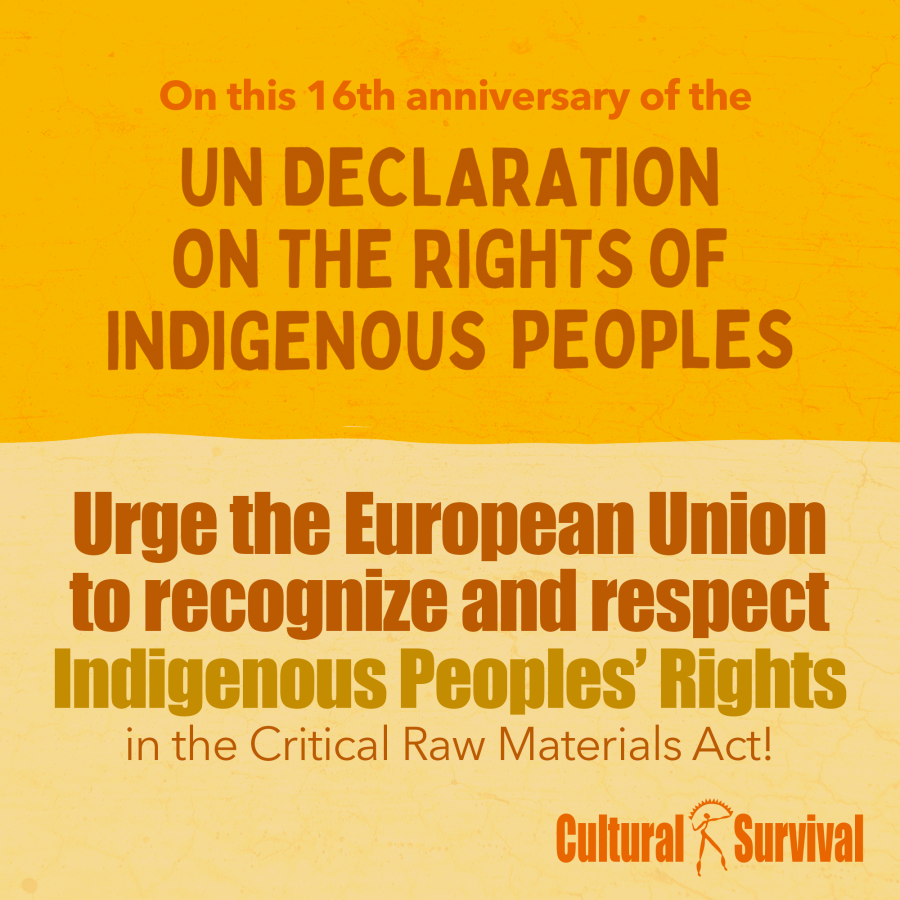More than 1,000 indigenous people and indigenous rights advocates are gathered at the United Nations in New York City for the third session of the U.N. Permanent Forum on Indigenous Issues.
The Permanent Forum was established to advise the Economic and Social Council of the United Nations (ECOSOC), United Nations’ agencies, and member states on issues concerning indigenous peoples. The Permanent Forum has quickly become the “focal point for indigenous issues at the U.N. and a meeting place for indigenous peoples, member states and other stakeholders the world over,” said ECOSOC President Marjatta Rasi at the opening of the session on May 10. “Over the first two years, the Forum has already made notable progress in raising awareness of indigenous issues throughout the U.N., acting as a catalyst for different agencies.”
The third session focuses on the rights of indigenous women, specifically how indigenous women relate to the Permanent Forum’s five mandated topic areas: culture, human rights, environment, education, health, and social and economic development. During the 10 working days of the Permanent Forum, indigenous peoples’ representatives and organizations present interventions to the 16 indigenous and state-nominated members of the Permanent Forum. These statements demonstrate the commonality of indigenous struggles. They will be used by the Forum members to compile a final report, which will be submitted to ECOSOC as well as other relevant U.N. organs, funds, agencies, and programs.
Hundreds of interventions have been made at this session. The following excerpts highlight some issues that have been addressed.
Akuthi Okoth, representative of the Anywaa (Anuak) Survival Organization:
“Between December 13 and 16, over 424 Anuak were massacred in Gambella town by [Ethiopian] Government troops and local militias … Women and children have been psychologically traumatized by the violence and the loss of their loved ones. They live in constant fear as rape, torture and killings have become a way of life for them. Over 10,000 men, boys, and some women and children have fled to Pochalla, Sudan for safety, but the situation there is also very dire. In the last four months these refugees have received very little food … The situation in Gambella is grave, and in urgent need of international attention.”
Charmaine White Face, on behalf of the Teton Sioux Nation Treaty Council:
“ Because we live in the middle of the richest nation state in the world, it is assumed we do not have problems and are often denied access to UN programs and agencies. As you can see, these situations could easily be considered genocidal practices as the health of the people on the reservation (more than 50,000 people) are at stake. However, pollution does not stop at skin color, and the ‘bread basket of the world,’ which provides food for millions throughout the world, is being affected.”
Lovella Calica Hoffert, making a collective statement of the Indigenous Youth Caucus:
“We recommend the creation and facilitation of Indigenous media promoting positive images of Indigenous Peoples to give accurate representation of our people and promote youth confidence in our culture. We urge the immediate adoption of the Draft Declaration on the Rights of Indigenous Peoples sections 7, 8, and 9 which will protect and control the media.”
Rosalia Gutierrez, representing the Student Body of the First Nations of America:
“As a result of becoming educated and attending universities we were accused of not being Indigenous anymore. These rumors from the cities would reach our communities, and as a result we suffered all types of persecuting regarding our education.”
Hawai’i Caucus Joint Statement on Human Rights:
“[We ask the] Permanent Forum to advocate for the adoption of the Declaration on the Rights of Indigenous Peoples with an unqualified right of self-determination. There would be no single greater accomplishment toward the recognition of the human rights of all indigenous peoples than the passage of this Declaration.”
Collective Statement of the Indigenous Caucus on the World Bank:
“The Permanent Forum notes the deep and widespread concerns among indigenous peoples about the World Bank’s Grant Facility for indigenous peoples. The World Bank’s lack of transparency in the appointment of board members of the Grant Facility and its other activities is fomenting disunity and conflict among indigenous peoples’ organizations and detracts attention from the serious problems affecting indigenous peoples arising from the World Bank’s policies, programs, and projects.”
Declaration of the Indigenous Peoples of the Caucus of Latin America:
“ We want to make it clear that our people will not tolerate the folklorization of culture, without taking into account that many cultural expressions are eminently spiritual and they form part of the people’s cosmovision and therefore are sacred. Many cultural elements are paired with spirituality and the collective historic memory. Thus, they are not touristic merchandise that governments use as promotions of tourist attractions without the consent of the peoples as cultural exchange and under cultural norms,” translated from Spanish to English by Sarah Albrecht.
Chandra Roy, on behalf of the Asian Indigenous Peoples’ Caucus:
“Women are the custodians of our cultures and knowledge and the mainstay of our subsistence economies. We are more severely affected by processes of globalization, but rarely if ever involved in so-called participatory processes. We call on the Permanent Forum to urge member-states, U.N. bodies and agencies, including financial institutions (such as the World Bank and the Asian Development Bank) to ensure that indigenous women are fully engaged as rights holders in all such processes.”
Collective Statement of Indigenous Peoples of the Pacific Region:
“There are attempts being made by the Superpower governments in the Pacific, including New Zealand, Australia, and the United States, to extinguish forever the Indigenous peoples’ title to our lands and waters. Of paramount concern is the legislation pending in New Zealand Parliament to extinguish the Maori peoples’ rights to the foreshore and seabed in contravention of the Treaty of Waitangi. We are similarly concerned by the news that the government of Australia has decided to terminate the work of the Aboriginal Torres Strait Islanders Commission (ATSIC). In regards to Hawai’i, the United States Congress is on the verge of passing legislation that will set in motion a 20-year ticking time bomb on the recognized rights and claims of the Kanaka Maoli [Native Hawai’ian] peoples to their lands, waters, and sovereignty.”



